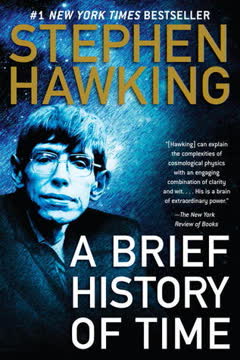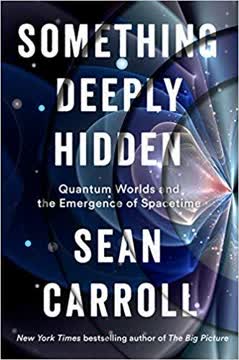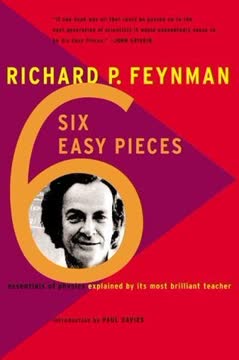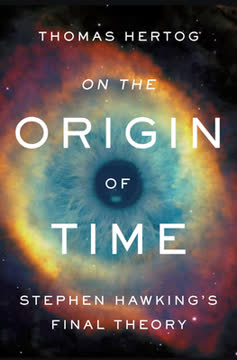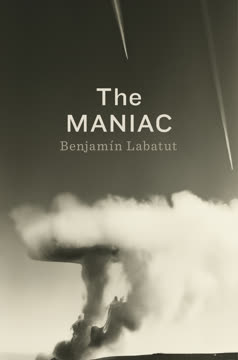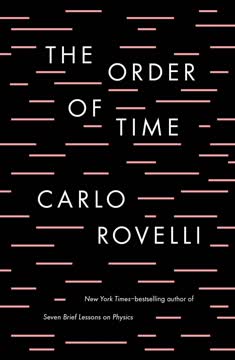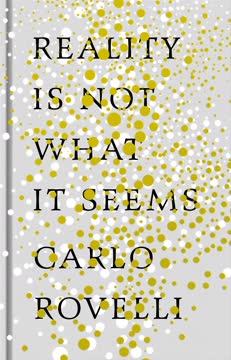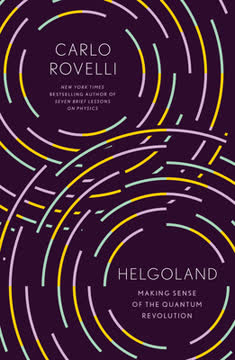نکات کلیدی
1. زمان جهانی نیست، بلکه نسبی و متغیر است
زمان واحدی وجود ندارد: برای هر مسیر زمانی متفاوتی وجود دارد؛ و زمان با ریتمهای مختلفی بر اساس مکان و سرعت میگذرد.
زمان نسبی است. نظریه نسبیت انیشتین نشان داد که زمان یک ثابت جهانی و ثابت نیست. بلکه بر اساس عواملی مانند جاذبه و سرعت تغییر میکند. برای مثال:
- زمان در نزدیکی اجسام بزرگ به دلیل اتساع زمانی گرانشی کندتر میگذرد
- زمان برای اجسامی که با سرعتهای بالا حرکت میکنند به دلیل نسبیت خاص کندتر میگذرد
- ساعتهای ماهوارههایی که به دور زمین میچرخند کمی سریعتر از ساعتهای روی زمین تیک میزنند
این بدان معناست که گذر زمان در سراسر جهان یکنواخت نیست. دو ناظر در چارچوبهای مرجع مختلف ممکن است زمان را بهطور متفاوتی تجربه کنند، که چالشهایی برای درک شهودی ما از یک "اکنون" جهانی و واحد ایجاد میکند.
2. لحظه حال یک مفهوم جهانی نیست
یک حال که در سراسر جهان مشترک باشد وجود ندارد. رویدادها به صورت گذشته، حال و آینده مرتب نمیشوند؛ آنها فقط به صورت "جزئی" مرتب میشوند.
"اکنون" محلی است. ایده یک لحظه حال جهانی در سراسر جهان یک توهم است. در واقعیت:
- حال یک پدیده محلی است که فقط به محیطهای نزدیک ما گسترش مییابد
- رویدادهایی که به نظر یک ناظر همزمان میآیند ممکن است برای ناظر دیگری همزمان نباشند
- مفهوم "اکنون" در مقیاسهای کیهانی به دلیل سرعت محدود نور از بین میرود
این درک بهطور بنیادی درک ما از ساختار جهان را تغییر میدهد. به جای یک سری لحظات "اکنون" جهانی، ما یک شبکه پیچیده از رویدادهای جزئی مرتب شده داریم که به هم متصل هستند اما بدون یک خط زمانی واحد و عینی.
3. تمایز گذشته و آینده از آنتروپی ناشی میشود
تمام تفاوت بین گذشته و آینده ممکن است تنها به این واقعیت نسبت داده شود که آنتروپی جهان در گذشته پایین بود.
آنتروپی جهت زمان را تعریف میکند. تمایز بین گذشته و آینده در قوانین بنیادی فیزیک که زمانمتقارن هستند ذاتی نیست. بلکه از رفتار آماری سیستمهای بزرگ ناشی میشود که توسط قانون دوم ترمودینامیک کنترل میشود. نکات کلیدی:
- آنتروپی، معیاری از بینظمی، تمایل به افزایش در طول زمان دارد
- گذشته به نظر منظمتر (آنتروپی پایینتر) از آینده میآید
- این عدم تقارن باعث ایجاد درک ما از جهت زمان میشود
جهت زمان که ما تجربه میکنیم در نتیجه حالت اولیه آنتروپی پایین جهان است، نه یک ویژگی بنیادی از خود واقعیت.
4. جهان از رویدادها ساخته شده است، نه چیزها
جهان مجموعهای از چیزها نیست، بلکه مجموعهای از رویدادها است.
واقعیت فرآیندی است. دیدگاه شهودی ما از جهان به عنوان مجموعهای از اشیاء پایدار یک تقریب است. در سطحی عمیقتر، واقعیت از رویدادها و فرآیندهای به هم پیوسته تشکیل شده است. این تغییر در دیدگاه پیامدهای عمیقی دارد:
- اشیاء بهتر است به عنوان رویدادها یا فرآیندهای طولانیمدت درک شوند
- اجزای بنیادی واقعیت تعاملات هستند، نه موجودیتهای ثابت
- این دیدگاه با فیزیک مدرن، از جمله مکانیک کوانتومی و نسبیت، بهتر همخوانی دارد
پذیرش این هستیشناسی مبتنی بر رویداد به ما کمک میکند تا تجربه روزمره خود را با بینشهای غیرمستقیم علم معاصر آشتی دهیم و تصویری دقیقتر از ماهیت جهان ارائه دهیم.
5. زمان از دیدگاه و تعاملات ما پدیدار میشود
شاید جریان زمان ویژگی جهان نیست: مانند چرخش آسمانها، به دلیل دیدگاه خاصی است که ما از گوشهای از آن داریم.
زمان دیدگاهی است. جریان زمان همانطور که ما آن را تجربه میکنیم ممکن است یک ویژگی ذاتی از جهان نباشد، بلکه یک پدیده پدیدار شده از دیدگاه خاص ما و تعاملات ما با جهان باشد. در نظر بگیرید:
- درک ما از زمان توسط سیستمهای فیزیکی خاصی که بخشی از آنها هستیم شکل میگیرد
- جهت زمان ممکن است به دیدگاه محدود و "مبهم" ما از واقعیت مرتبط باشد
- زمان میتواند مشابه سایر پدیدههای دیدگاهی، مانند چرخش ظاهری آسمان باشد
این نشان میدهد که تجربه ما از جریان زمان یک حقیقت جهانی نیست، بلکه نتیجه موقعیت ما در کیهان و ماهیت تعاملات ما با آن است.
6. حافظه و پیشبینی تجربه ما از زمان را شکل میدهند
ما تاریخچههای خودمان هستیم، روایتها. من افکارم هستم که پر از ردپای جملاتی است که مینویسم؛ من نوازشهای مادرم هستم و مهربانی آرامی که پدرم با آن مرا به آرامی هدایت کرد؛ من سفرهای نوجوانیام هستم؛ من آنچه که خواندهام و در لایههایی در ذهنم انباشته شده است هستم؛ من عشقهایم، لحظات ناامیدیام، دوستیهایم، آنچه نوشتهام، آنچه شنیدهام؛ چهرههایی که در حافظهام حک شدهاند هستم.
زمان در هویت ما تنیده شده است. تجربه ما از زمان به شدت با حس خودمان مرتبط است، که توسط حافظه و پیشبینی شکل میگیرد. این تعامل حس ذهنی تداوم زمانی ما را ایجاد میکند:
- حافظه به ما اجازه میدهد تا روایتی از گذشته خود بسازیم
- پیشبینی به ما امکان میدهد تا خود را به آیندههای ممکن پیشبینی کنیم
- تعامل بین گذشته، حال و آینده حس هویت مداوم ما را ایجاد میکند
این دیدگاه نشان میدهد که زمان چقدر عمیق در آگاهی و درک خودمان تنیده شده است، و تجربه ما از زمان به همان اندازه که یک پدیده فیزیکی است، یک پدیده روانشناختی نیز هست.
7. آنتروپی جهان را به حرکت در میآورد، نه انرژی
این آنتروپی است، نه انرژی، که سنگها را روی زمین نگه میدارد و جهان را به حرکت در میآورد.
آنتروپی موتور کیهانی است. در حالی که ما اغلب انرژی را به عنوان نیروی محرکه جهان میدانیم، در واقع افزایش آنتروپی است که تکامل کیهانی و پدیدههای روزمره را به حرکت در میآورد. نکات کلیدی:
- انرژی حفظ میشود، اما آنتروپی همیشه در سیستمهای بسته افزایش مییابد
- جریان از آنتروپی پایین به بالا فرآیندها و تغییرات در جهان را ممکن میسازد
- حتی پدیدههای سادهای مانند سقوط اجسام در نهایت توسط افزایش آنتروپی هدایت میشوند
این تغییر دیدگاه به توضیح میدهد که چرا جهان تکامل مییابد و در طول زمان تغییر میکند، علیرغم حفظ انرژی، و نقش بنیادی آنتروپی در شکلگیری واقعیت را برجسته میکند.
8. هویت ما توسط حافظه و دیدگاه زمانی شکل میگیرد
ما فرآیندها، رویدادها، مرکب و محدود در فضا و زمان هستیم. اما اگر ما یک موجودیت فردی نیستیم، چه چیزی هویت و وحدت ما را بنیان میگذارد؟
هویت پویا است. حس خودمان یک ذات ثابت و تغییرناپذیر نیست، بلکه یک فرآیند پویا است که توسط تجربه ما از زمان و حافظه شکل میگیرد. این دیدگاه از هویت چندین پیامد دارد:
- ما بیشتر شبیه داستانها یا روایتها هستیم تا موجودیتهای ثابت
- هویت ما بهطور مداوم از طریق حافظه و پیشبینی بازسازی میشود
- حس خودمان از تعاملات ما با جهان و دیگران پدیدار میشود
این درک از هویت به عنوان یک فرآیند زمانی با روانشناسی مدرن و هستیشناسی مبتنی بر رویداد فیزیک معاصر همخوانی دارد و دیدگاه دقیقتری از معنای انسان بودن ارائه میدهد.
9. زمان ممکن است اثری از درک محدود ما باشد
زمان به شبکهای از روابط تبدیل شده است که دیگر به عنوان یک بوم منسجم نگه نمیدارد.
انسجام زمان توهمی است. تجربه روزمره ما از زمان به عنوان یک جریان صاف و پیوسته ممکن است یک اثر از درک محدود ما باشد. در سطح بنیادی، زمان به نظر میرسد:
- شبکهای پیچیده از روابط بین رویدادها
- نه یک بعد واحد و جهانی بلکه مجموعهای از پدیدههای محلی
- ممکن است از تعاملات در سطح کوانتومی و دیدگاه ماکروسکوپی ما پدیدار شود
این نشان میدهد که درک شهودی ما از زمان ممکن است یک تقریب مفید باشد تا یک بازتاب دقیق از ساختار زیرین واقعیت.
10. درک زمان ما را به خودمان بازمیگرداند
درک خودمان به معنای تأمل در زمان است. اما برای درک زمان باید در خودمان تأمل کنیم.
زمان و خود در هم تنیدهاند. جستجو برای درک ماهیت زمان در نهایت ما را به بررسی آگاهی و درک خودمان میکشاند. این رابطه دایرهای نشان میدهد:
- تجربه ما از زمان به شدت با حس خودمان مرتبط است
- درک زمان نیازمند این است که در نظر بگیریم چگونه ما به عنوان موجودات آگاه با جهان تعامل داریم
- مطالعه زمان پل بین فیزیک، فلسفه و روانشناسی است
این بینش نشان میدهد که درک کامل از زمان ممکن است نیازمند نه تنها فیزیک، بلکه یک رویکرد جامع باشد که شامل مطالعه آگاهی و تجربه انسانی است.
آخرین بهروزرسانی::
FAQ
What's "The Order of Time" by Carlo Rovelli about?
- Exploration of Time: "The Order of Time" delves into the nature of time, challenging our conventional understanding and exploring its complexities through the lens of modern physics.
- Scientific Perspective: Rovelli uses concepts from quantum mechanics and relativity to explain how time is not a single, uniform entity but a complex web of events and interactions.
- Philosophical Inquiry: The book also addresses philosophical questions about time, such as its relation to human perception and consciousness.
- Emergence of Time: Rovelli discusses how time emerges from a timeless universe, focusing on the role of entropy and the observer's perspective.
Why should I read "The Order of Time"?
- Deepen Understanding: It offers a profound insight into one of the most fundamental aspects of our universe, challenging and expanding your understanding of time.
- Interdisciplinary Approach: The book combines physics, philosophy, and literature, making it accessible and engaging for readers from various backgrounds.
- Thought-Provoking: Rovelli's exploration of time encourages readers to question their perceptions and consider the broader implications of scientific discoveries.
- Engaging Writing: Rovelli's clear and poetic writing style makes complex scientific concepts understandable and enjoyable.
What are the key takeaways of "The Order of Time"?
- Time is Not Absolute: Time is not a single, universal flow but varies depending on speed and gravity, as shown by Einstein's theories.
- Entropy and Time's Arrow: The direction of time, or the "arrow of time," is linked to the increase of entropy, which is a measure of disorder.
- Time and Human Perception: Our experience of time is deeply connected to memory and anticipation, making it subjective and personal.
- Emergence from Simplicity: Time as we know it emerges from a more fundamental, timeless reality, shaped by our interactions and observations.
How does Carlo Rovelli explain the concept of time in "The Order of Time"?
- Relativity and Time: Rovelli explains that time is relative, influenced by factors like speed and gravity, which can cause it to flow at different rates.
- Quantum Mechanics: He discusses how quantum mechanics introduces uncertainty and granularity to time, challenging the notion of a continuous flow.
- Thermal Time Hypothesis: Rovelli introduces the idea that time emerges from thermodynamic processes, with entropy playing a crucial role.
- Subjective Experience: He emphasizes that our perception of time is shaped by our brain's processing of memories and expectations.
What is the "thermal time hypothesis" in "The Order of Time"?
- Emergent Time Concept: The thermal time hypothesis suggests that time emerges from the thermodynamic properties of systems, particularly through entropy.
- Entropy's Role: Entropy, a measure of disorder, increases over time, providing a direction or "arrow" to time's flow.
- Macroscopic Perspective: This concept highlights that time is not fundamental but arises from the macroscopic states of systems.
- Blurring and Ignorance: Our limited knowledge and blurred perception of the universe contribute to the emergence of time as we experience it.
How does "The Order of Time" relate time to human perception and consciousness?
- Memory and Anticipation: Rovelli argues that our sense of time is deeply tied to memory and anticipation, which are functions of the brain.
- Subjective Experience: Time is experienced subjectively, with our consciousness creating a narrative that links past, present, and future.
- Temporal Illusions: The book suggests that many aspects of time, such as its flow and direction, are illusions created by our perception.
- Philosophical Implications: Rovelli explores philosophical questions about the nature of time and its connection to human identity and existence.
What are the implications of time being relative, as discussed in "The Order of Time"?
- Variable Flow: Time does not flow uniformly; it can speed up or slow down depending on factors like gravity and velocity.
- No Universal Present: There is no single "now" that applies universally; what is present for one observer may not be for another.
- Impact on Physics: This relativity of time challenges traditional physics and requires new ways of understanding the universe.
- Human Experience: Our everyday experience of time is an approximation, influenced by our specific conditions and limitations.
How does Carlo Rovelli address the concept of entropy in "The Order of Time"?
- Entropy and Time's Arrow: Rovelli explains that the increase of entropy gives time its direction, distinguishing past from future.
- Statistical Nature: Entropy is a statistical measure of disorder, and its increase is a fundamental aspect of thermodynamics.
- Emergence of Time: The concept of entropy is central to the emergence of time from a timeless universe, as it provides a framework for understanding change.
- Perspective and Blurring: Our perception of entropy and time is influenced by the blurring of details and our limited perspective.
What role does quantum mechanics play in "The Order of Time"?
- Granularity of Time: Quantum mechanics introduces the idea that time is not continuous but consists of discrete "quanta."
- Indeterminacy: The uncertainty inherent in quantum mechanics challenges the notion of a fixed, predictable flow of time.
- Relational Aspect: Rovelli discusses how quantum mechanics suggests that time is relational, depending on interactions between systems.
- Fundamental Level: At the most fundamental level, time as we know it may not exist, replaced by a network of events and interactions.
What are the philosophical questions about time explored in "The Order of Time"?
- Nature of Reality: Rovelli questions whether time is a fundamental aspect of reality or a construct of human perception.
- Existence of the Present: The book explores whether the present is a meaningful concept in a universe without a universal "now."
- Time and Identity: Rovelli examines how our understanding of time is linked to our sense of self and consciousness.
- Illusion of Flow: The book challenges the idea that time flows in a linear, unidirectional manner, suggesting it may be an illusion.
What are the best quotes from "The Order of Time" and what do they mean?
- "Perhaps time is the greatest mystery." This quote encapsulates the central theme of the book, highlighting the complexity and enigmatic nature of time.
- "Time is ignorance." Rovelli suggests that our perception of time is a result of our limited understanding and blurred vision of the universe.
- "We are time." This quote emphasizes the idea that our identity and consciousness are deeply intertwined with our experience of time.
- "The world is not a collection of things, it is a collection of events." Rovelli challenges the traditional view of a static universe, proposing a dynamic, event-driven perspective.
How does "The Order of Time" challenge traditional views of time?
- Non-Uniform Flow: The book argues against the idea of a single, uniform flow of time, presenting it as variable and relative.
- No Absolute Present: Rovelli challenges the notion of a universal present, suggesting that time is localized and subjective.
- Emergent Property: Time is presented as an emergent property, not a fundamental aspect of the universe, arising from thermodynamic processes.
- Philosophical Reinterpretation: The book encourages a philosophical reevaluation of time, questioning its role in reality and human perception.
نقد و بررسی
کتاب نظم زمان به بررسی ماهیت زمان از طریق فیزیک و فلسفه میپردازد. روولی تصورات رایج را به چالش میکشد و استدلال میکند که زمان نسبی و شاید توهمی است. او مفاهیمی مانند آنتروپی، گرانش کوانتومی و عدم وجود یک "اکنون" جهانی را مورد بحث قرار میدهد. بسیاری از خوانندگان کتاب را به دلیل نگارش زیبا و گسترش ذهن تحسین کردند و توانایی روولی در توضیح ایدههای پیچیده را ستودند. برخی با بخشهای فنیتر کتاب دچار مشکل شدند. بهطور کلی، کتاب به دلیل رویکرد شاعرانهاش به علم و بینشهای تحریککنندهاش بهطور گستردهای مورد تقدیر قرار گرفت، اگرچه برخی منتقدان آن را گیجکننده یافتند یا با نتایج روولی موافق نبودند.
Similar Books



